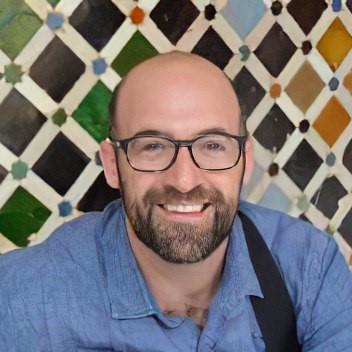

Clinician Scholar Spotlight: Tyler Albert
Written by Dr. Tyler Albert
Work
After completing residency, a chief year, and a clinician-educator fellowship in Pulmonary & Critical Care medicine, I joined the Seattle VA and the faculty in the Division of General Internal Medicine at the UW. During fellowship I learned how to conduct research in medical education through the Teaching Scholars Program and combined my interests in global health and medical education to create curricula for the pulmonary and critical care training programs in Cambodia.
Now at the VA, my clinical time is divided between the MICU, Pulmonary Consults, Inpatient Medicine, and Procedures services, as well as an outpatient pulmonary clinic. I serve as the residency site director for Inpatient Medicine, mentor the Chief Residents, attend in morning report, and frequently teach trainees.
Other than clinical work and teaching, I spend my time on research within the field of medical education. My scholarship focuses on improving the educational experience and environment within graduate medical education. Specifically, my interests involve improving the learning environment, clinical reasoning education, and professional development for Internal Medicine residents and chief residents.
I have participated in and run multi-center, national studies on morning report and the transition to synchronous distance education during to the COVID-19 pandemic, created new opportunities and curricula for residents to practice clinical reasoning (Virtual Interactive Case-based Education, aka Seattle VICE), and helped develop and sustain near-peer coaching tools for senior residents.
Currently, I am working on a strategy to reduce implicit biases that may occur during chief resident selection and to improve the career development and mentorship opportunities for the chiefs once they begin. I am also mentoring trainees and colleagues across a variety of projects, including assessing the value of attending input and the use of evidence-based medicine during morning report, understanding the risk factors for fatal pulmonary emboli at the Seattle VA, and investigating the validity of the race correction factor used in pulmonary function tests.
Ultimately, my goal is to improve patient care by optimizing the learning process and educational environment for both trainees and faculty at the VA.
VA Puget Sound Health Care System
Medical education is one of the core missions of the Department of Veterans Affairs, and nowhere is this more evident than at the Seattle VA. The environment is ideal for trainees to develop their clinical intuition with both autonomy and support while delivering compassionate care to an underserved patient population.
My position at the VA is an example of the leadership’s commitment to medical education: I have the institutional support and expectation to pursue my clinical and scholarly interests while mentoring others through their academic pursuits. I have been privileged to receive excellent mentorship throughout my training, and I hope to pass on what I have learned to those whom I now mentor.
I love my job at the VA because it allows me to learn something new each day while I attend on the wards, see patients in clinic, teach, write, or mentor trainees. The consistent threads throughout these activities are the trainees and faculty with whom I work and the patients for whom we care.
My colleagues at the VA continually push themselves and each other to create a community that values curiosity and excellence. And the patients are nothing short of exceptional, always willing to donate their time and energy to contribute to our learning in every way they can.